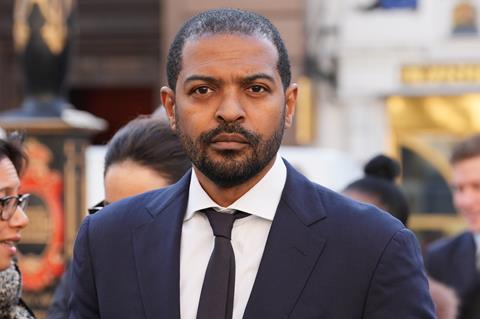A journalist who investigated allegations of sexual misconduct by Noel Clarke was told by sources they were acting out of “moral obligation” to s
A journalist who investigated allegations of sexual misconduct by Noel Clarke was told by sources they were acting out of “moral obligation” to stop him “acting in an unacceptable way in the future”, London’s High Court was told yesterday (April 3).
Sirin Kale, who has worked for The Guardian in various capacities since 2017, said she spoke to more than 70 “direct and corroborative” sources to support the paper’s claims in various publications about the UK actor-director-producer.
Clarke is suing the paper’s publisher, Guardian News and Media (GNM), over seven articles and a podcast, including an April 2021 article that said 20 women who knew Clarke professionally had come forward with allegations of sexual misconduct and bullying.
He denies the allegations and has said several people who have made claims are part of a conspiracy to defame him, while GNM is defending its reporting as being both true and in the public interest.
In her witness statement, Kale said she was first contacted about the story by Paul Lewis, the Guardian’s head of investigations, on April 6 2021 after it received a tip-off from two sources, who were part of a wider group of seven people.
Those in the group “had formed as a result of either their concerns about Mr Clarke’s conduct, or who themselves stated they were victims of Mr Clarke in some way”, Kale said.
Kale continued she “approached the investigation with no particular expectation of publishing an article” but that the sources appeared “credible”.
She said: “While some of the group of seven had mutual friends or contacts, or had worked together, this did not strike me as unusual, given that they were all professionals working in the UK film and TV industry, which I knew to be a relatively petite community.
“I did not consider the group of seven to be a tight-knit group of friends.
“These sources told me that they were acting out of a sense of moral obligation, to prevent Mr Clarke from being able to abuse or harass other women.
“I did not, therefore, perceive the initial sources to be a pre-existing friend group who had collectively decided they wanted to damage Mr Clarke’s reputation.
“Rather they seemed to be motivated by a desire to prevent Mr Clarke from acting in an unacceptable way in the future towards other women.”
Kale continued she was connected with further sources, but said: “Many of our sources were hesitant about speaking to journalists, and very concerned that their names should not be made public.
“They expressed fear of Mr Clarke and the impact on their career of speaking out.”
Clarke was awarded an honorary Bafta for outstanding contribution to British cinema in 2021. The award and his membership of Bafta were suspended following the allegations.
During Kale’s cross-examination, the court heard a recording of a call the journalist had with Philippa Crabb, one of the women named in the newspaper’s reporting.
Philip Williams, representing Clarke, suggested Kale wanted Mr Clarke’s Bafta to be taken away from him.
Kale replied: “I don’t think I wanted his Bafta to be taken away from him. I wanted his alleged conduct to be made public.”
According to the Guardian’s own reporting of the trial, Williams, representing Clarke, put to Kale that none of Clarke’s accusers were Black, but she rejected that characterisation.
The journalist told the court that she had spoken to “multiple women” who were Black or mixed race who did not consent to their names being used in the article “and felt that it was difficult to speak publicly about such matters because Mr Clarke was … a successful Black man”.
The barrister later asked whether she wanted to “cancel” Clarke.
He continued: “You wanted to cause Clarke as much damage as possible, didn’t you Ms Kale?”
The journalist said: “No, I wanted to publish an article that documented what I felt were credible allegations from 22 women of misconduct.”
The hearing before Mrs Justice Steyn is due to conclude this month with a decision in writing given at a later date.

COMMENTS